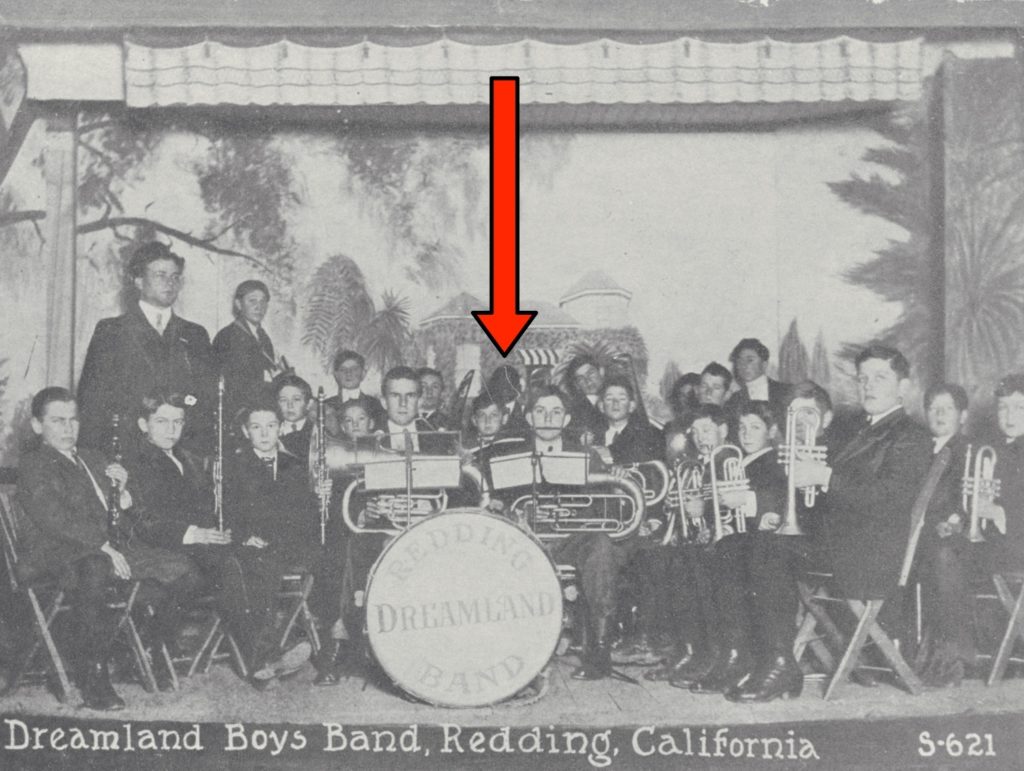As we transition from Black History Month to Women’s History Month, I thought it would be a good time to share a story of solidarity from Shasta County history that you won’t read anywhere else.
Jane Olney was one of Redding’s pioneering business women. After her husband, Albert, died on March 4, 1901, she inherited his assets, including a saloon and the building it occupied on California Street. A little over a year later, a massive fire erupted on the block, destroying the Paragon Hotel, her saloon, and a number of other buildings1. Mrs. Olney’s loss was estimated at $1,200 and she was only partially insured2.
Nevertheless she was able to rebuild bigger and better, hiring Holt & Gregg to build a two-story pressed-brick building designed by Charles H. Barrett, architect of the Lorenz Hotel, for $5,0003.
In the coming years, Olney parlayed her business successes into a small theater empire. Her first theater appears to have been The Majestic, in which she was initially a silent partner or acquired between June 1909 and February 1910. In February of 1910, she also acquired a half-interest in the Dreamland theater. That May, she got out of the saloon business, selling the operation but apparently retaining the building.

At some point during the 1910s, Olney also operated the Victory Theater, which was operating in 1914. Olney also eventually bought the other half-interest in the Dreamland at some point and operated it until June 1918, when she sold it to J.R. Bauer 4
The tale of solidarity comes from a 1915 article in an African-American newspaper called the Western Outlook. At this time before “talkies,” it was common for theaters to have live music to accompany vaudeville and silent film. The Dreamland had a boys’ band that played out front three times a week and may have accompanied the shows as well. The visiting writer for Western Outlook was pleasantly surprised to see a 12-year-old African-American boy, Adolph Norman, playing trombone with the band and asked about it. The reporter writes:
“On inquiry, we learned that some of the boys objected at first, but the lady who owns the theater promptly informed them that Adolph was going to play [even] if he played alone, so they could suit themselves about playing. This was about a year ago, and they are all playing yet. He is a sight reader, a natural musician and the best in the bunch.”
Western Outlook,October 16, 1915.


